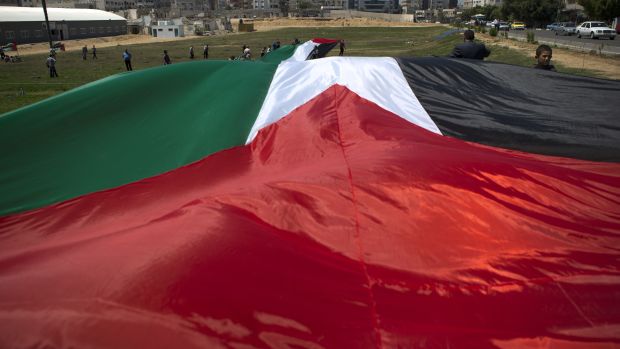There have been no uprisings in Palestine like those we have seen hit several neighboring countries in the region. That is to say, since its seizure of the Gaza Strip and its ejection of the representatives of the Palestinian Authority more than six years ago, Hamas has not faced any pressure from inside its territory to relinquish its power. Hamas’s rise to power and the events that followed caused the deepest rift we have seen in the Palestinian territories, where there are now in fact two authorities in charge.
In recent years Hamas has acted almost like an independent state, with regional and international ties of its own. It resisted the idea of reconciliation with the Palestinian Authority on the premise that any such deal would help the latter return to the Gaza Strip in accordance with previous agreements regulating movement over the borders separating the Palestinian territories with both Egypt and Israel.
The change that has now imposed itself on Hamas—prompting it to make compromises and accept the formation of a joint government, elections after six months, and the return of the Presidential Guard to the border crossings with Egypt—echoes the developments the region has witnessed since the wave of change hit Tunisia, Egypt, Libya, Syria and Yemen.
Both the balance of political power and regional alliances have now shifted, and Hamas’s leadership has been ejected from Damascus. With Hezbollah fighting alongside Assad in the Syrian conflict, it was natural that the group’s relationship with Hamas would wane. In fact, Hezbollah used to exploit Hamas to cause trouble in Egypt on behalf of Iran and Syria. With Hezbollah exposing its sectarian agenda, its slogans—such as resistance to Israel—have lost all meaning.
But it was the removal of the Muslim Brotherhood from power in Egypt that was the biggest factor pushing Hamas toward reconciliation. The Brotherhood was a group not only ideologically sympathetic to Hamas, but one that held power in the country that has done more to support the Palestinians than any other over the past decades. This convinced Hamas it had achieved its strategic objective. But as things turned out, it was not prudent enough to distance itself from the political conflict in Egypt. On the contrary, Hamas became involved in the affairs of its neighbor to the extent that it began to pose a security threat to Cairo thanks to the tunnels linking Gaza and Egypt. These were used to smuggle commodities, weapons and fighters into Egypt, prompting Cairo to launch an ongoing security campaign to systematically destroy the tunnels—said to have numbered in the hundreds.
These tunnels were the lifeline of the Hamas government in Gaza. They provided it with so much tax revenue that it formed a special administrative body just to charge duties on commodities passing through them.
But reaching a dead end, and faced with clear signs of unrest among Gaza’s public, Hamas eventually decided to follow Tunisia’s Islamist Ennahda Movement, which had to relinquish power in order to avoid a confrontation with its opponents like the one that occurred in Egypt. This remains true even taking into consideration the differences in the circumstances between the two countries. Ennahda is said to have preferred giving up power to losing influence, having seen the Brotherhood in Egypt lose both, and its future in Egyptian politics disappearing over the horizon.
Whatever the case may be, what is most important is that the agreement to form a Palestinian unity government, whose members were sworn in on Monday, was signed with the best intentions. The circumstances in Palestine have changed. Now that Hamas is in possession of power and weapons on the ground, it will be important to see how it will deal with the Presidential Guard and the Palestinian Authority when they return to the Gaza Strip. It is also important to realize that the Islamist group has come to grips with the changes in the political geography, and that there will be no return to “the time of the tunnels” ever again. Hamas would do well instead to concentrate on what is in the best interests of the Palestinian people.
Foreign powers concerned about and sponsoring the peace process should give this agreement a chance and help the Palestinian Authority consolidate rather than weaken its power—so long, of course, as this unity government, of which Hamas is a part, honors all previous agreements.
